There is some uncertainty abound for the vegetable sector in Romania. With the new season right around the corner, one could say it will start in a challenging time. The agricultural engineers at Marcoser have been gathering information for 15 years and use this information to offer specialized advice to the market. They’ve been keeping track of three different types they’ve planted for the first time in their greenhouse.
The Romanian agricultural sector is ready to start a new season in which it will offer its vegetables and fruits to the national and international market. “At Marcoser, we analyze, with a future perspective, the current situation in which we find ourselves in Romania. After a winter with mild temperatures and little snow, the farmers dedicate this newly released spring to get ready their crops in the hope of being able to offer them to the population at prices according, at least, with the investment made.” says Inmaculada Duarte Garzon, marketing manager for Marcoser.
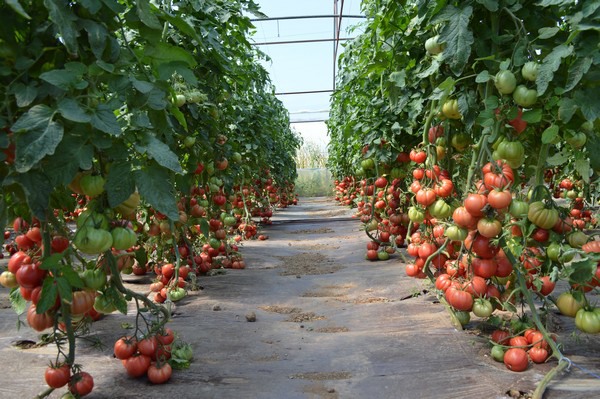
She feels there will be two different challenges ahead for the Romanian vegetable sector. “There are many questions on what this new season will look like, mainly for two reasons; the first one, which we have already announced, would be the general absence of low temperatures during the past winter months. This news seriously affects the increase in viruses that threaten crops during the spring. Romanian farmers will have to be more prepared than ever for what they might encounter in their crops during the vegetative development of plants. The second problem that we face is the uncertainty that the coronavirus brings to the markets. As markets are short of people and buyers these days, but full of produce”
Gazon is looking forward to the debut of three of their greenhouse vegetables. “At Marcoser, our agricultural engineers have worked for 15 years gathering agricultural inputs and offering specialized advice on vegetables crops, both in open field and in greenhouses. We are convinced that only by investing in the professionalism of daily work, both in the use of products and in applied techniques, we will be able to take full advantage of the Romanian agricultural industry. In the greenhouses that we have in Marcoser and where we carry out field tests of the new products to be marketed in Romania, we currently have three different types of crops planted for this first season, all of these varieties are Global GAP certified:”
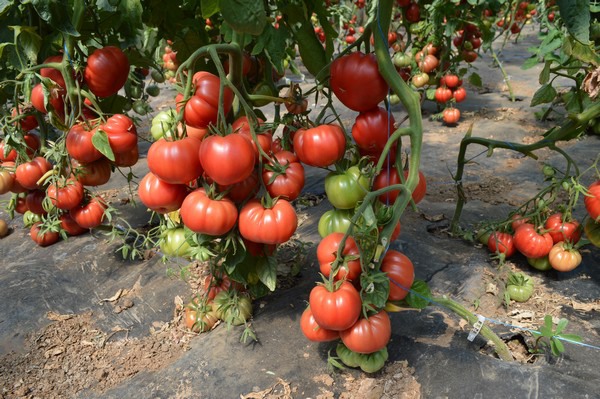
Tomato
Variety: HB 101153 F1
Planting date: 4th March
Winter structure and elements used: It was planted in tunnels under thermic film, the growing media is soil and heating system is using solid fuel to produce hot air.
Treatments applied to date: Due to the weather conditions we needed to take care about the phosphorus uptake and another challenge was to conduct the plants towards a generative state. We used a special nutrition program with special nutrients in this phase like Sprintene and Floramec, for instance.
Expected harvesting date: 20th May
Production / Kg: 6 kg of tomatoes /plant
Planting density: 33,000 plants/ha
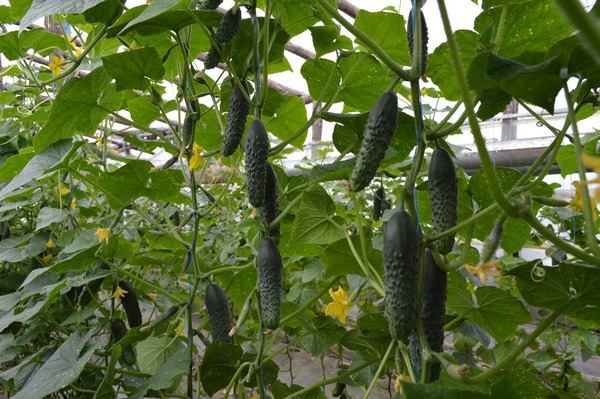
Cucumber
Variety: Pleasure F1
Planting date: 26th February
Winter structure and elements used: It was planted in tunnels under thermic film, the growing media is soil and heating system is using solid fuel to produce hot air.
Treatments applied to date: Due to the weather conditions we needed to take care about the uptake of macro and micro elements. Especially we were concentrating to have a good setting of fruits and special nutrients like Salwax and Alcaplant was used
Expected harvesting date: 30th March
Production / Kg: depending on the price level 6-8 kg/plant
Planting density: 28,000 plants /ha
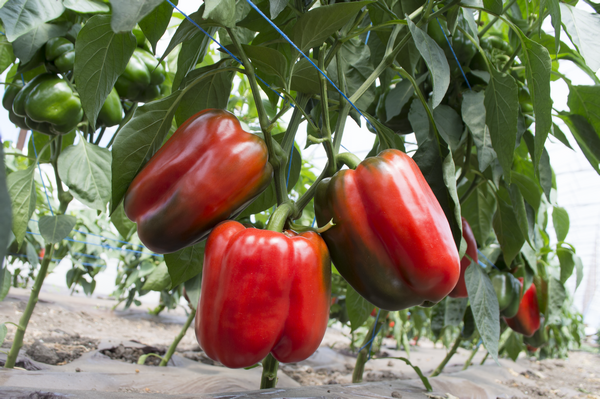
The Olmo variety
Pepper – California Wonder type
Variety: Olmo F1 and Isabel F1
Planting date: Week 13
Winter structure and elements used: The production is made in tunnels under thermic plastic film; growing media is soil, without heating just covered for extra protection with nonwoven fabric.
Treatments: The pests and disease will be controlled with beneficial insects and IPM measures.
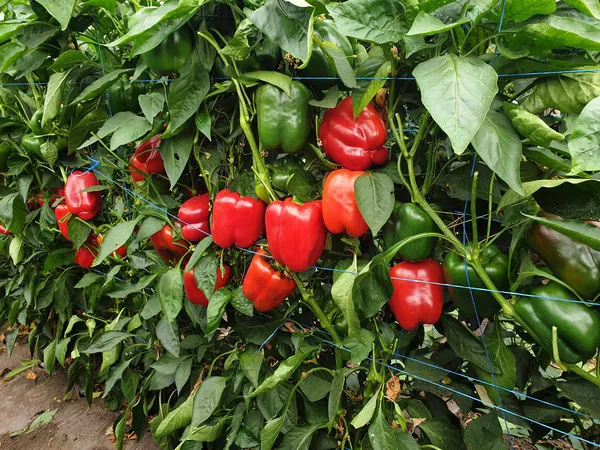 The Isabel variety
The Isabel variety
According to Garzon, these varieties are well known and appreciated in the Romanian market: “Some of them, like Pleasure F1 cucumber, are an essential cucumber in Romanian’s daily cuisine. Others, like the HB 101153 F1 tomato, have become popular tomato for consumers and others. As we have commented, the role of an agent specialized in market trends and an agricultural specialist, to advise you during the cultivation process, becomes essential in these times when there are so many variables to check and decide trying to make the most of your investment during the season.”
The coronavirus will have a big impact on the Romanian market. Garzon is mostly worried about being able to get the produce in the hands of consumers: “The health, social and economic crisis generated by the rapid spread of the covid-19 virus throughout the world also ravages agriculture, an essential engine (now more than ever) for the correct and continuous supply of food to the population. In Romania, we face a new challenge; where do our farmers sell their freshly picked and ready-to-eat produce if people are afraid of going to popular markets? The absence, in general, of cooperatives or companies that receive the production and distribute it to wholesalers and retailers causes a gap in the way of trade in Romanian agriculture, used to the fact that the farmers themselves wholesale their production in different markets. Can the internet and ecommerce help in this case?”
To try and connect growers with buyers, Marcoser has been highlighting their online agricultural platform, that could be of help: “We launched Bursa de Legume a few years ago; an agricultural online platform in which to consult market prices and offer a space for producers and buyers to reach a purchase-sale agreement. At this point a new question would arise, are traders prepared to adopt these unconventional selling methods? This new unknown, added to the recurring one in terms of sale prices, forces us to rethink the market; its commercial traditions, its means and its possibilities. Producing quality food is very important, but getting that production to the market at a competitive price is essential for the continuity of agricultural activity and all the agents involved in it.” Garzon concludes.
For more information:
Inmaculada Duarte Garzon
Marcoser
Tel: +40 756.711.763
Email: inmaduarte@marcoser.ro
www.marcoser.ro
